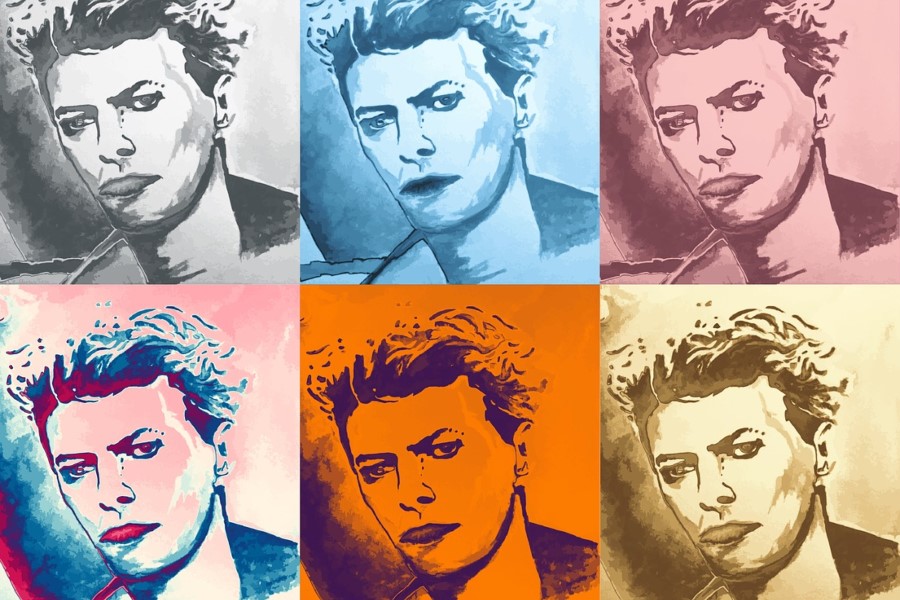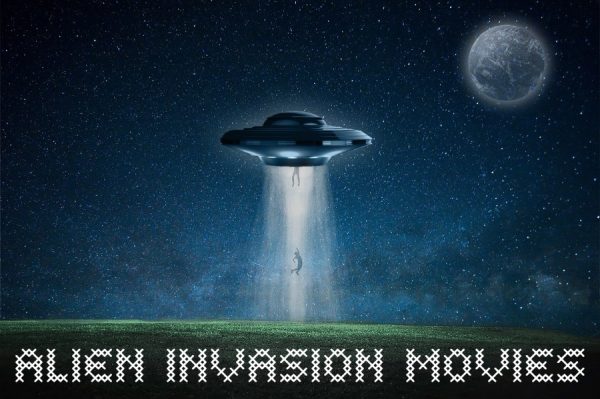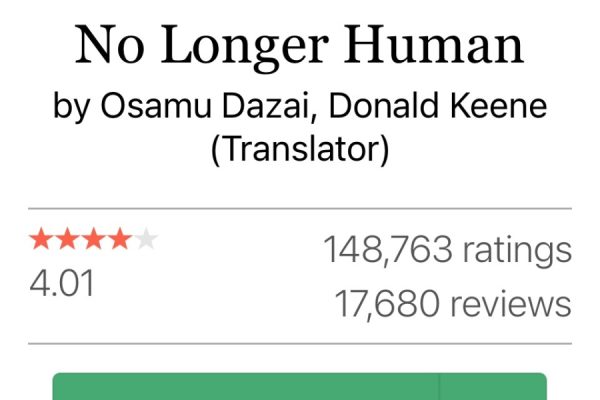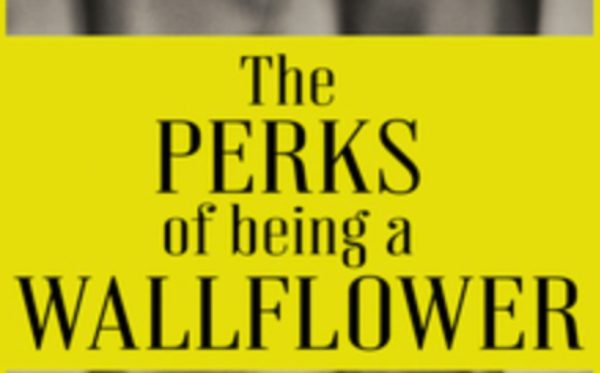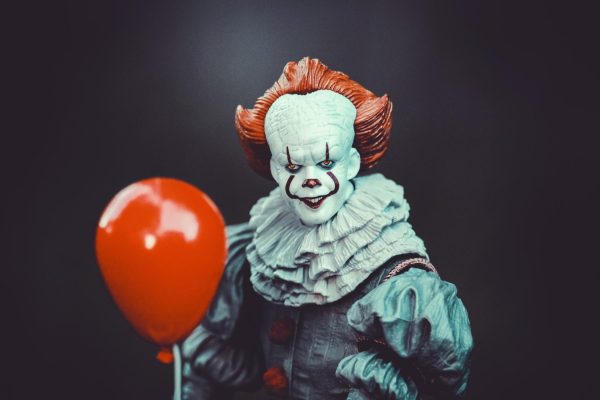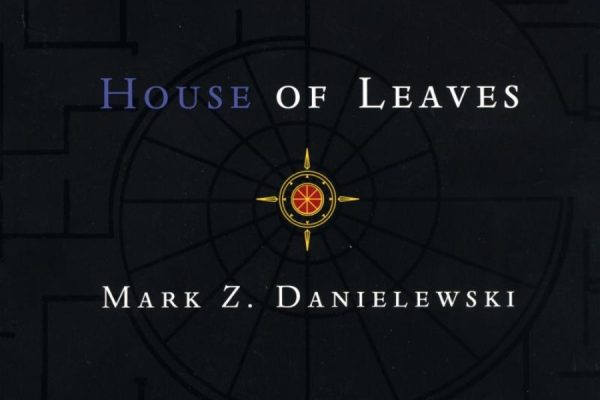Bowie’s Hunky Dory remains a classic
David Bowie’s album Hunky Dory includes some of the top track from Bowie’s catalogue.
David Robert Jones (David Bowie), is born on January 8, 1947 in London England. David Bowie throughout his career managed to become one the most infamous and successful rock stars of all time through his use of strange and never seen before personalities and stage presence. The arc of his career featured over 5 different personas, including Ziggy Stardust, Aladdin Sane, Halloween Jack, the Thin White Duke, and lastly Black Star- the Blind Prophet.
Through highs and lows, Bowie managed to be credited with over four hundred different songs including greats such as “Changes,” “Life On Mars,” and “Oh! You Pretty Things.” What I forgot to mention is all three of these songs are included in just one album by Bowie, Hunky Dory. Hunky Dory is highly credited as not only of Bowie’s greatest albums but also ranked number 88 on Rolling Stone’s “500 Greatest Albums of All Time”.
Bowie is undeniably a “star” and here is my review of his infamous album Hunky Dory.
Hunky Dory
Changes
The first song on this album, “Changes,” was nearly so different from anything he has written before. The song is nearly ironic based on the fact that the song is written about Bowie’s use of different styles and experimentation with his musical interests. Not only his changes in musical interests but also discusses youth and their interests in rock music. The song has many multiple interpretations through the listener’s ears and it is up to you to decide its meaning.
“Changes” is undoubtedly one of Bowie’s best works but I believe there are so many other more powerful songs on Hunky Dory that are nearly shadowed by the popularity of “Changes.” “Change” is absolutely an amazing song though and gives you very happy feelings of joy through its beat and chord structure regardless of the nearly sad lyrics.
Oh! You Pretty Things
This happened to be the first song Bowie wrote for the album. Its meaning, like many other songs on the album, has a dark and nearly sad idea of reflecting upon the ideals of philosopher Friedrich Nietzsche. He had developed the song on an early January morning in 1971 stating, “I couldn’t sleep … this song was going ’round in my head. I had to get out of bed and just play it … so that I could get back to sleep again.”. I believe it to possibly be one of his most underrated songs on the album as it is extremely beautiful and has great structure.
This song is potentially one of my favorite songs on this album, highly ranking it up there with Life On Mars and Quicksand. It is so catchy and I can never stop thinking about the chorus and even the meaning of the lyrics.
Eight Line Poem
“Eight Line Poem” is a very interesting one as it is quite literally an eight-line poem… Bowies use of long instrumentals nearly makes up 2 minutes of the entire 2 minutes and 55 seconds that the song adds for high suspense and a very calming feeling. His use of piano with a fat-sounding guitar supplies a very beautiful tone that makes this song so unique and relaxing.
“Eight Line Poem” never really was one of my favorites by Bowie. While it holds strong and beautiful meaning with its deeply rooted melodic solos at the beginning, I always found it too hard to really sink in with deep, especially with most moods.
Life On Mars?
“Life On Mars” is ranked as Bowie’s most successful song, not only on this album but ever. Bowie’s beautiful use of chord structures and overall lyrics and melody creates possibly one of the most beautiful tracks on this album. Bowie was commissioned to create English lyrics for the French song “Comme d’habitude”. Bowie’s lyrics were rejected and exchanged for Paul Anka’s lyrical writing of “My Way,” which eventually was sung infamously by Frank Sinatra. David Bowie, as a way of nearly mocking the song, created “Life On Mars.” The song describes a girl at a cinema in her attempt to escape reality. The song describes all these different situations throughout movies but nearly none of them seem to shock or surprise the girl as she’s lived a life of so much action in a way. “Life On Mars” is an extremely complicated piece through its intricate piano part or even the interesting lyrical use to describe the events Bowie is trying to portray.
It’s hard not to love this song with its near-power ballad movements. It’s so strong and I believe Bowie has such a strong way of expressing an idea or story. Even Bowie’s ability to create a concept and make such a strong story out of it makes his songwriting so powerful and unique compared to other artists.
Kooks
The song “Kooks”, is a pastiche to early 1970s Neil Young due to Bowie’s listening to Neil Young’s record during the time Bowie was presented with the news of the arrival of his son. The song quickly took off though with its view as an anthem for the common “outsider”. He addresses his son throughout the song asking soon-to-be Zowie “Will you stay in our lovers story? If you stay you won’t be sorry, ‘cause we believe in you”. This appears to be a very beautiful and meaningful song for Bowie and appears to be one of the few happy and loving songs on this album.
I love the acoustic guitars during the intro of this song and it makes for nearly a reverb or echoed effect with the multitrack. It creates such a unique and interesting effect and I love every bit of it.
Quicksand
Quicksand included multi-tracked guitars, and string arrangement by Mick Ronson, whom you see appear many other times on the album. With quicksand being nearly 5 minutes long, it contains many heartfelt and deeply rooted motives including Buddhism and surrealism. He comes back to Friedrich Nietzsche’s philosophy except this time speaking on his “Superman.” The concept of the nearly magical society “Golden Dawn” actually mentions one of its most famous members Aleister Crowley as well as Winston Churchill, Juan Pujol, and Heinrich Himmler. It is described as potentially one of Bowies darkest songs which I can see with lyrics such as, “Don’t believe in yourself, don’t deceive with belief, knowledge comes with death’s release.”
I find this to possibly be one of Bowie’s saddest songs and his most meaningful and powerful. It is genuinely probably my favorite song on the album with its deep meaning and even deeper instrumentals to back it up.
Fill Your Heart
“Fill Your Heart” happens to be a cover of Tiny Tim’s version, which appeared on his album God Bless Tiny Tim, the same album “Tiptoe Through The Tulips” is on.
“It fits in with the record really well because it sounds like a Bowie song, doesn’t it? You wouldn’t know if you were listening to the album that it wasn’t a song he wrote. We did brass on that and David played saxophone.”
-Trevor Bolder
I personally love the song and how catchy it is. It’s genuinely always one of those songs that I have to finish if I start playing because of how catchy it is overall from the piano to the horns, all the way to the vocals and melodic lines.
Andy Warhol
Bowie’s most abstract track on the album, with intention, is “Andy Warhol.” The song is nearly a tribute to Warhol’s works stated by Bowie due to his large love for Warhol’s works. Sadly enough, Bowie one day got to meet his idol, which proved to not go quite as well as Bowie was hoping. Bowie quoted that the encounter was awkward and stated that he gave him a copy of “Hunky Dory,” which Warhol hated.
Though the song was a tribute to Warhol I am not the biggest fan of the song as it’s mostly just abstract and very very different. Don’t get me wrong the song is very special for these reasons but at the same time, a song can only get so abstract before it is just plain strange. It sometimes can be hard to get past the very interesting beginning but once you do the song is a great song.
Song for Bob Dylan
Coincidentally enough, the next track happens to also be an ode to another one of Bowie’s colleagues, Bob Dylan. Starting the song by addressing Bob by his birth name, Robert Zimmerman. Bowie described Bobs voice throughout the song as “sand and glue” which sounds quite offensive at first glance but is meant as a compliment for Bob Dylan’s ability to create a dramatic and electrifying effect. Though this song was meant positively, Bob Dylan seemed nearly rude to Bowie as he showed his distaste for nearly all of his music. Though Dylan had a distaste for Bowie, Bowie still continued to cover Dylan’s music many years later,
I do like the riff at the beginning and I think it sets the song up for a great sort of heavy ballad-like song.
Queen *****
Appearing on the b side of the Hunky Dory record, “Queen B*****” is one of the more interesting pieces of all. The song describes a drag queen and talks about a man who tries to advance upon one (the narrator) who rejects him. It has been referred to as possibly one of the best glam rock songs of all time.
I think it’s a great song overall especially I love the pre-chorus going into the chorus with Bowie’s doubled vocals.
The Bewlay Brothers
“The Bewlay Brothers” is the final track on Hunky Dory, ballad that has been described as “probably Bowie’s densest and most impenetrable song”
Bowie claimed to producer Ken Scott that it was a track for the American market despite its almost nonsensical lyrics.
Based on his strange lyrics, commentators have discussed their concepts about the song from possibly Bowie’s schizophrenic half-brother, to a possible gay agenda. No one may ever really know the actual meaning behind this song but either way, it doesn’t change the fact that this piece is nearly full.
Overall this is absolutely one of my favorite albums of all time if not my favorite. Bowie has paved such an inspirational pathway through so many lives and lives on in the hearts of the listeners.


